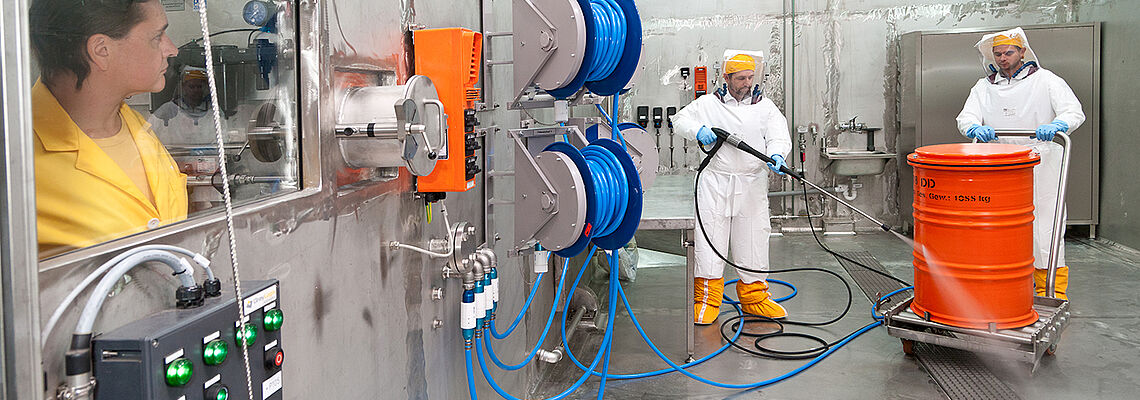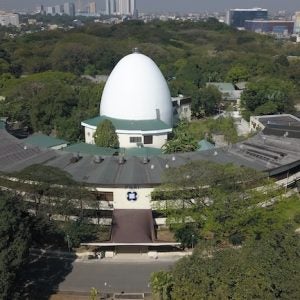 An International Atomic Energy Agency (IAEA) Integrated Review Service for Radioactive Waste and Spent Fuel Management, Decommissioning and Remediation (ARTEMIS) team, following a 10-day mission has found that Austria demonstrates commitment to the safe management of the pre-disposal of its radioactive waste, while also noting opportunities to enhance the regulatory framework and arrangements for eventual disposal. The mission was carried out at the request of the Austrian government and hosted by the Federal Ministry for Climate Action, Environment, Energy, Mobility, Innovation and Technology (BMK), the regulatory authority for radioactive waste and used fuel management.
An International Atomic Energy Agency (IAEA) Integrated Review Service for Radioactive Waste and Spent Fuel Management, Decommissioning and Remediation (ARTEMIS) team, following a 10-day mission has found that Austria demonstrates commitment to the safe management of the pre-disposal of its radioactive waste, while also noting opportunities to enhance the regulatory framework and arrangements for eventual disposal. The mission was carried out at the request of the Austrian government and hosted by the Federal Ministry for Climate Action, Environment, Energy, Mobility, Innovation and Technology (BMK), the regulatory authority for radioactive waste and used fuel management.
Although Austria has no operating NPPs, low- and intermediate-level radioactive waste is generated from the use of radiation sources in medical and industrial applications, as well as in science and research, including at the TRIGA Mark II research reactor in Vienna, and from the decommissioning of facilities and laboratories from past research and development activities. Results from a 2018 IAEA Integrated Regulatory Review Service (IRRS) mission to Austria were taken into account where relevant.
The team comprised four experts from Canada, Finland, France and the UK, as well as three IAEA staff members and observers from Croatia and the European Commission. They met with officials from the BMK, the Federal Ministry of Social Affairs, Health, Care and Consumer Protection, the Federal Ministry of Finance, Nuclear Engineering Seibersdorf (Austria’s central waste management organisation), the TRIGA Center Atominstitut of the Vienna University of Technology, as well as the Austrian Agency for Health and Food Safety.
The team found that Austria has developed a comprehensive strategy for the safe and responsible predisposal management of radioactive waste until 2045. They highlighted the modernisation of waste treatment facilities in Seibersdorf, the reconditioning of waste for handling, transport or storage and the interim storage of this reconditioned radioactive waste as examples of effective management. The team also encouraged the Austrian Federal Government to update its national strategy to include a consolidated implementation plan for waste disposal — the final step in the management of radioactive waste.
“The team saw a high commitment to the safe radioactive waste management by the responsible organisations in Austria, including with their state-of-the-art radioactive waste predisposal management practices,” said team leader, Jussi Heinonen, Director at STUK, the Radiation and Nuclear Safety Authority of Finland. “They face a challenge in the effective implementation of waste disposal and we have focussed our recommendations on a clear regulatory framework and implementation plan for disposal.”
Mathilde Prevost, IAEA coordinator of the mission, highlighted the establishment of the Austrian Board for Radioactive Waste Management in 2021 as a positive action. “The Board is seeking to find an optimal solution for disposal considering the latest scientific knowledge and socio-economic aspects. This is a positive step towards the definition of a consolidated implementation plan for disposal.”
The main recommendations and suggestions provided by the team included:
- The Federal Government’s consolidated implementation plan for disposal should include interim targets, allocation of responsibilities and governance processes.
- The Federal Government should ensure that coordination or implementation of the national programme for radioactive waste management is effectively separated from the regulatory oversight of safety.
- BMK should revise regulations to clarify regulatory expectation on periodic safety reviews and licensing of decommissioning activities or disposal facilities.
“We are proud of our state of the art, well-functioning waste management facilities in Seibersdorf, which are key to minimising the quantity of radioactive waste in Austria. This puts us in an ideal position for upcoming decisions on the final disposal of the remaining waste,” said Verena Ehold, Head of the BMK Department for Radiation Protection. The final mission report will be provided to the government in two months.
Image: Workers at one of the waste treatment facilities in Seibersdorf (courtesy of NES)






